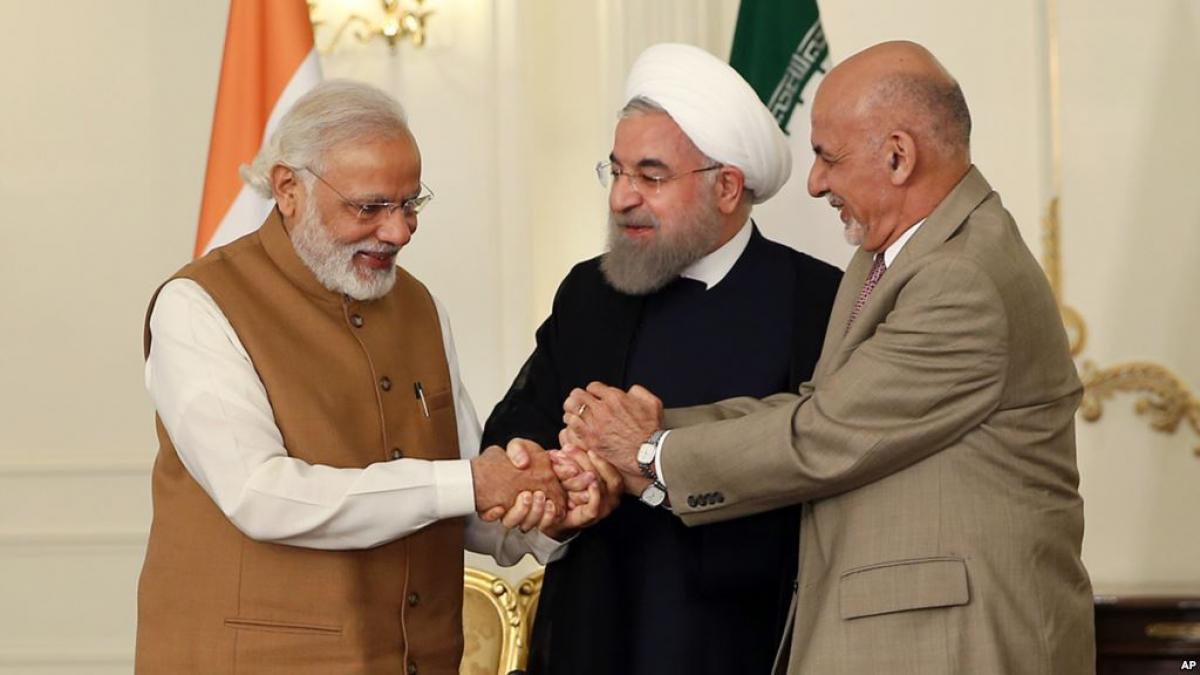Live
- WI vs Bangladesh Watch Controversial Banter Between Shakib and King
- EFLU Celebrates Bharatiya Bhasha Diwas
- Manchu Manoj Submits Bond of Rs. 1 Lakh to Rachakonda Commissioner
- Cuba denounces US 'theft' of Havana Club rum trademark
- Places of Worship Act: Mathura Shahi Eidgah mosque files intervention application in SC
- Violence erupts during 'Parbhani bandh'; MVA flays sacrilege to Ambedkar statue
- Addressing ethical challenges of AI, making social media accountable on fake news: Ashwini Vaishnaw
- Assam Congress to hold three-day review meeting to discuss bypoll debacle
- Indian pharma companies set to make further progress in US market in 2025: HSBC
- High Court Grants Relief to Mohan Babu, Orders Surveillance at Residence
Just In

It was supposed to be a welcome mat, a warm-up exercise for the triumphant return of the only man on the planet once barred entry to the US by a law to address the very chamber that had passed it.
It was supposed to be a welcome mat, a warm-up exercise for the triumphant return of the only man on the planet once barred entry to the US by a law to address the very chamber that had passed it.
But the hearing on the Capitol Hill just two weeks before Prime Minister Narendra Modi's fourth visit in two years turned into a critique of India with accusations of growing religious intolerance, gender violence, human trafficking and of all things slavery.
As the Senate Foreign Relations Committee met to set the stage for the visit with a discussion on "US-India Relations: Balancing Progress and Managing Expectations," the panel's Republican chairman Bob Corker decided to be "brutally honest."
"How does a country like this have 12 to 14 million slaves?" Corker asked expressing what he called frustration over India's failure to address its status as the country with the world's largest enslaved population.
"Do they have just zero prosecution abilities, zero law enforcement; I mean how could this happen? On that scale, it's pretty incredible," said the lawmaker from a country with a 250-year history of brutal slavery.
Even as he acknowledged that overall cooperation between the two countries remains at "an all-time high," he suggested that Modi's rhetoric far outpaced economic reforms.
His litany of grouses ranged from "onerous and unreasonable localization requirements, high tariffs, limits on foreign investment," to "unparalleled bureaucratic red tape."
He also had "serious concerns" about the treatment of intellectual property and "India's lack of progress in issuing contracts for US firms" eight years after the two countries signed their landmark civil nuclear deal.
Not to be outdone, Ben Cardin, the top Democrat on the panel, also wondered whether the US was being "candid" with India, "a democratic ally, a friend," with regard to "what is expected regarding issues like trafficking."
Another Democrat Tim Kaine, complained about India's denial of visas to a team from US Commission for International Religious Freedom as well as Sikh American community's concerns about desecration of Sikh religious texts and sites at some places.
India getting chummy with Tehran, with Modi signing 12 agreements, including one for the development of Chabahar port for gaining trade access to Iran, Afghanistan and Central Asia bypassing Pakistan, also raised some red flags with lawmakers wondering whether it violated US sanctions.
On both counts, it fell on Nisha Desai Biswal, Obama administration's India-born point person for South Asia, to come to the defence of a "democratic, pluralistic, and secular" society with whom US shares what Obama has famously called "a defining partnership of the 21st century."
On the issue of human rights, US does "engage in a candid and brutally honest conversation" she asserted while suggesting India itself was grappling with the issues the US was raising "in the context of their own democracy and debate."
On Iran, Biswal said she had not seen any sign of Indian engagement in areas such as military cooperation, that might be of concern to the US. Washington also recognised India's need for a trade route.
"From the Indian perspective, Iran represents for India a gateway into Afghanistan and Central Asia," she said. "It needs access that it doesn't have."
Biswal had her own list of "still much to be done to get two-way trade much closer to its potential" and send "an important signal to US investors that India is not only open for business, but also open to liberalizing its trade and investment practices."
But the bottom line is that India and the US need each other "to ensure that the Indo-Pacific region and the world is a more peaceful and prosperous place," as Biswal put it, and it's time lawmakers stop whining and playing spoilsport.

© 2024 Hyderabad Media House Limited/The Hans India. All rights reserved. Powered by hocalwire.com







